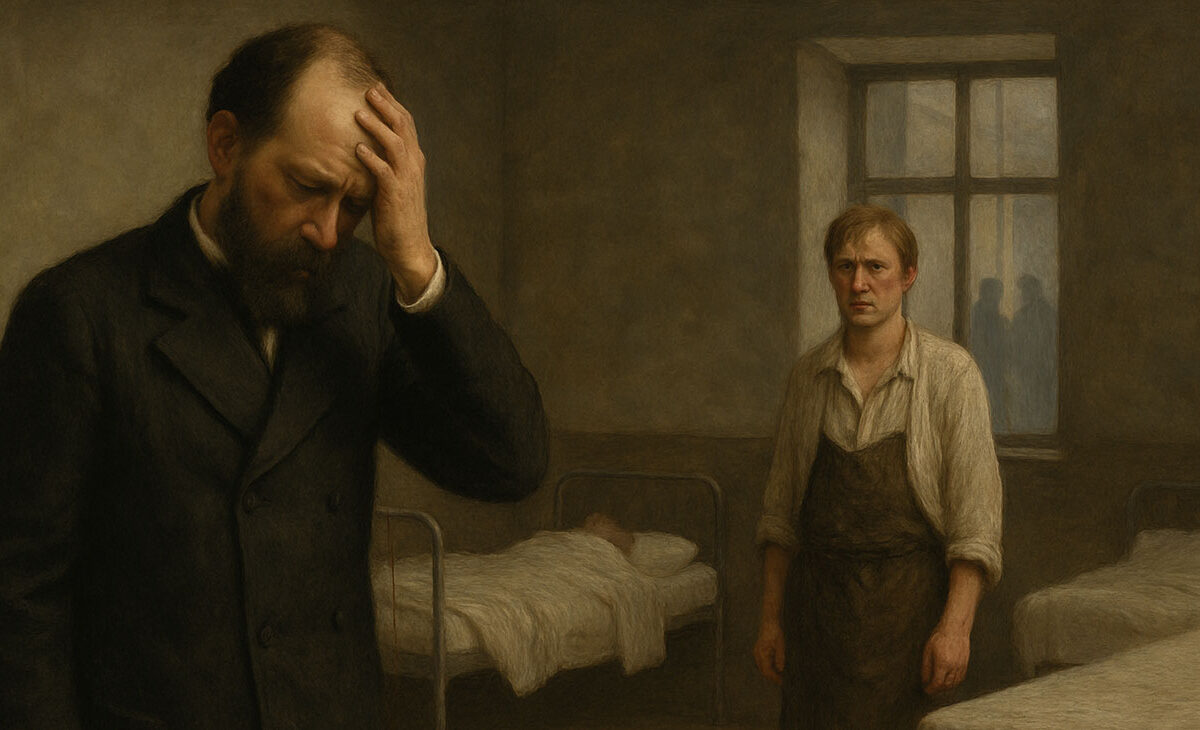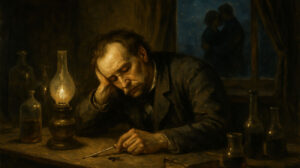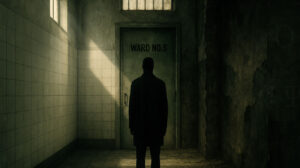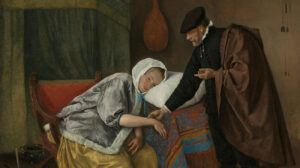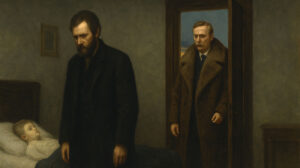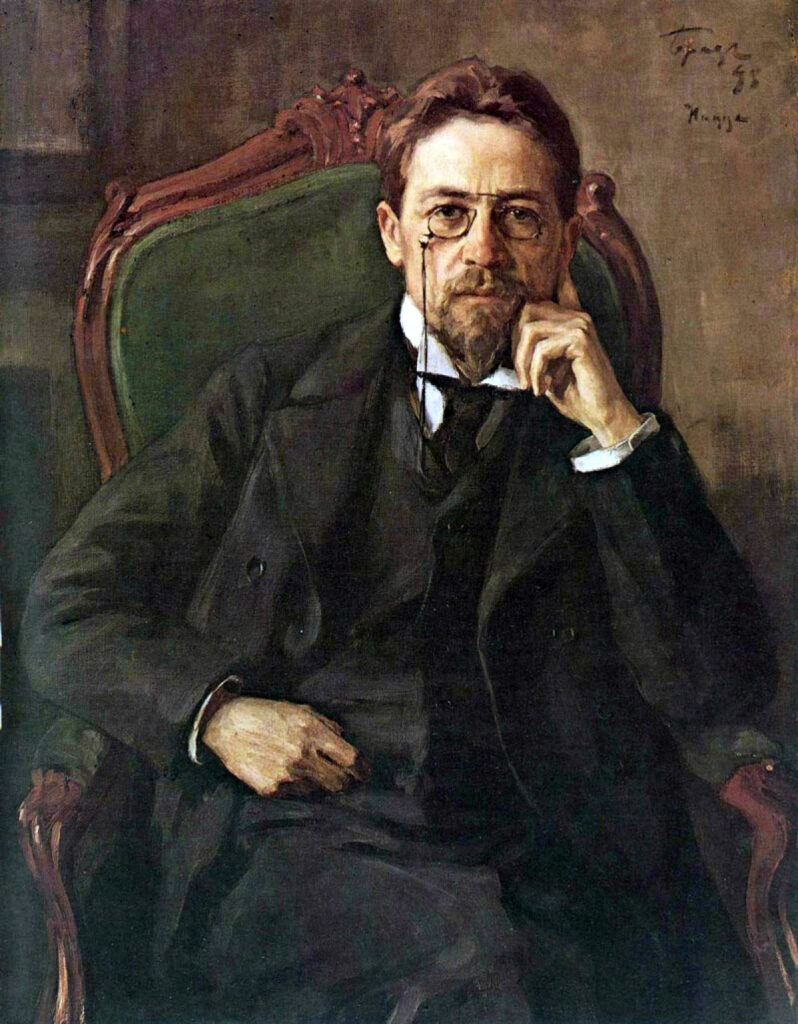
A country doctor, Gregory Ovchinnikov, begins his daily rounds in the hospital. He soon notices that his assistant, Smirnovsky, is drunk. When the assistant refuses to obey an order and verbally snaps back at him, Ovchinnikov hits the man in his face. The angry physician then rushes out of the ward and goes back to his lodgings, abandoning his patients.
At first, Ovchinnikov considers demanding that the town council fire Smirnovsky. Later, after he calms down and goes back to work, he begins to appreciate the enormity of his unprofessional act — perhaps the town council will fire him for assaulting his assistant. Strangely, when the assistant comes to apologize, the doctor indicates that it is he, the doctor, who has behaved inexcusably. The assistant is stunned but decides to report Ovchinnikov to the council. Of course, the council demands that the lower-class Smirnovsky apologize to the upper-class Ovchinnikov.
This story illustrates both a conflict of conscience and a conflict between social classes. With regard to the latter, it is quite clear that the town council would never rule against the gentleman-physician in favor of the drunken, lower class medical orderly. The physician, however, struggles with his own conscience: was he justified in hitting the man? If not, what should he do to make amends?
Originally Published 1888
Jack Coulehan (Ed.) Chekhov’s Doctors, Kent State University Press, 2003. Translated by Ronald Hingley.
A previous version of this review was published in the NYU Literature, Arts, and Medicine Database (Litmed).


